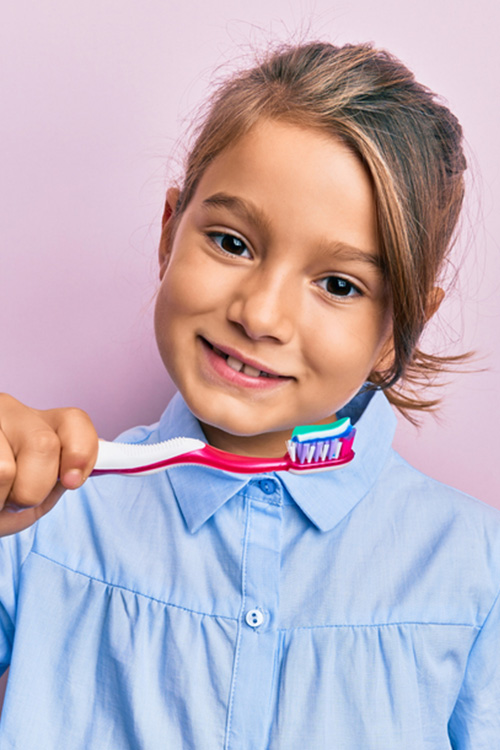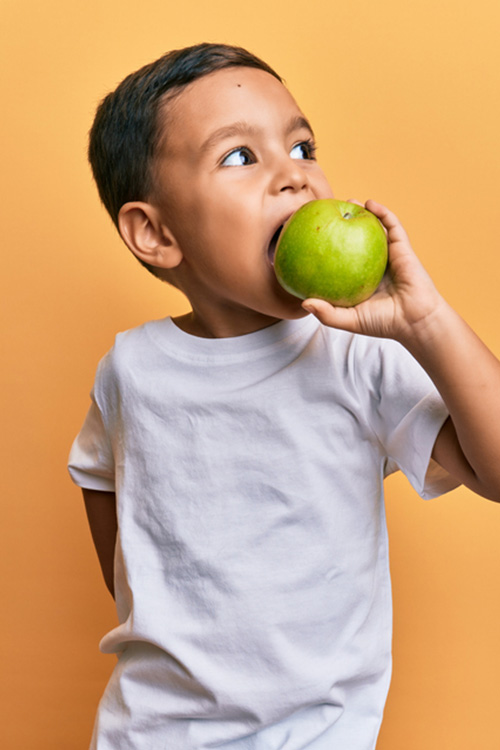Exceptional oral health starts at home!

Caring for Your Child’s Teeth and Gums
At Oak Tree Pediatric Dentistry, we always take the time to educate parents and patients on ways to keep cavities away, including establishing an awesome oral hygiene routine and sticking to a smile-friendly diet. Read on to learn some of the oral care basics. Or, for more personalized recommendations, schedule a visit at Oak Tree Pediatric Dentistry in Greenville online or by calling us at (864) 232-3333!
Oral Hygiene for Kids
Oral hygiene can start at birth. After feedings, you can wipe down your infant’s gums with a moist, clean washcloth or piece of sterile gauze. Once your baby’s first tooth erupts, begin brushing it with an infant-sized, soft-bristled toothbrush and a tiny smear of fluoride toothpaste (no larger than a grain of rice). You’ll want to increase the amount of toothpaste to a pea-sized amount for kids ages 3 to 6 and continue brushing twice a day for two full minutes each time. When your child’s teeth are touching, you can start flossing once daily too.



Diet
The bacteria in the mouth mix with saliva and food to form plaque, a sticky bacterial film. Whenever your child eats or drinks, the plaque bacteria feed on the sugars and starches in the food or beverage and release cavity-causing acids. Diet plays a key role in minimizing these acid attacks and preventing tooth decay.
Keep things smile-friendly by:
- Limiting sugary treats and beverages, as well as really sticky foods like fruit snacks and raisins.
- Encouraging kids to eat a well-rounded diet full of lean proteins, whole grains, low-fat dairy, colorful fruits and veggies, and healthy fats.
- Trying to avoid continuous snacking and sipping. How often kids eat is almost as important as what they eat, because every sip and bite sets off those acid attacks.
- Enjoying things like cookies, 100% fruit juice and starchy foods, such as chips, in moderation and having them as part of a larger meal.
- Offering kids water to drink throughout the day and never giving them milk, formula or juice in a bottle or sippy cup to take to bed at night.